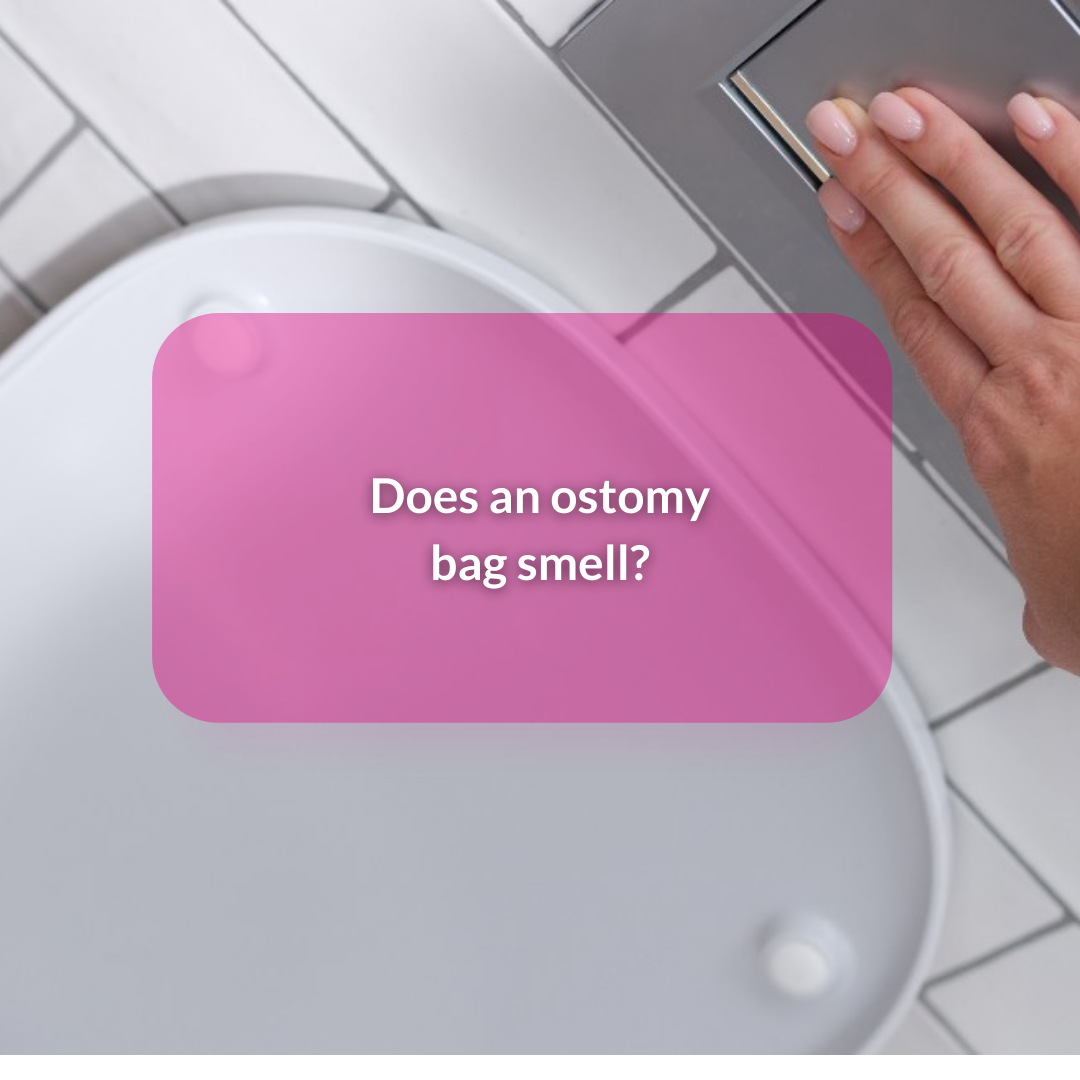The person who is most aware of your ostomy's smell is you.
Also, it is normal to smell your ostomy output and gas when you are changing your ostomy bag. As you would if you went to the toilet the standard way to poo, it's natural for it to have a smell... After all, it is waste from your digestive system!
If your bag is fitted around your ostomy correctly and adhered effectively to your skin, you should not smell anything from your ostomy apart from when you empty and change your bag.
If you do notice a smell, it may be worth checking around your bag to see if any output has started to seep under the adhesive.
There is also ostomy odour accessories that can help with this such as ostomy deodorant drops and spray. Some people also use things such as peppermint oil in their bags or even tic tacs to add a minty smell to reduce odour, but what you find effective will very much depend on the individual and also personal preference.
Air filters on ostomy bags

Modern ostomy bags have air filters with charcoal in them which are designed to neutralise the smell. They are also designed to release wind from the bag without the smell.
Sometimes, if the filter becomes blocked by stoma output or cannot handle the amount of wind being produced, it becomes ineffective and something called "ballooning" can occur. This is where the bag fills with air so the wind needs emptying manually.
To find out how our products can help ballooning, visit Katie's blog and read her post on ballooning when swimming.
Gas and odour immediately after stoma surgery

Immediately after and in the initial recovery period, your ostomy can be unsettled due to the trauma of surgery. With an ileostomy or colostomy, your output can be stop and start, watery and you may also experience a lot of wind. With a urostomy, you may experience infrequency of urine and your urine may be tinged with a pinky/bloody colour. This is normal and should stop after a few days. As always, if you are concerned, always seek medical advice.
Foods that can increase odour and/or gas with an ileostomy or colostomy

Having any ostomy (ileostomy, colostomy or urostomy) can be affected by the food you eat. This can be in relation to consistency, frequency, colour and smell, to name a few things. It is important to note that everyone is different with this. What affects one person may not affect another or may affect them but in varying degrees.
The foods that can cause odour with a colostomy generally can cause odour with an ileostomy too.
Some foods that can cause gas or odour are:
- Asparagus
- Alcohol
- Beans and peas
- Broccoli
- Cabbage
- Carbonated drinks
- Cauliflower
- Corn
- Eggs
- Fish
- Garlic
- Leeks
- Milk and dairy products
- Onions
- Peanuts
- Prunes
Foods that can reduce odour and/or gas with an ileostomy or colostomy

There are also foods that can actually help to reduce odour such as:
- Buttermilk
- Cranberry juice
- Kefir
- Parsley
- Yoghurt
Foods that can increase odour and/or gas with a urostomy

Urostomies can also be impacted by diet. Foods that can increase urine odour are:
- Asparagus
- Fish
- Garlic
- Onions
Ensuring that you stay hydrated can also help to dilute your urine which can reduce odour.
Other tips to reduce odour and/or gas

- Empty your ostomy bag when it's half to a third full. The amount of times you empty a day is very much down to the individual but it usually can vary between up to four and six times daily on average.
- Keep a food diary if you want to pinpoint what food and drink affects your stoma and how.
- Change your ostomy bag at a time of day where your stoma is least active. For a lot of people, they find that this is early in the morning before they have eaten or drank a lot.
- Avoid chewing gum as this can create excess wind.
- Eat regularly at roughly the same times every day. This can help your bowel to know when to expect a meal and when to function and reduce wind.
- Small, regular meals are better for reducing gas instead of larger, less regular meals.
- Some medications can also cause gas and odour. If you have recently started new medication and noticed an increase, it may be worth keeping a diary and mentioning it to your doctor if it becomes troublesome or doesn't decrease in time. Even non-prescription items such as antacids can affect your ostomy.
- Have you recently changed your ostomy bag or would it be worth trying a new one or even a bigger ostomy bag?
Links to other food and diet related posts
Click here to view our other blog posts on food and diet with an ostomy.




I live in Spain so there is a lot of garlic, which I loved.With eliminating certain things I found garlic and pastry melts the glue on my stoma ring🤷♀️XMarilyn
Hi Alan,
Unfortunately, we do not know enough about this and we recommend you seeking medical advice from a GP/medical professional.
Treatment or the reason of Blue Bag Syndrome.
Leave a comment